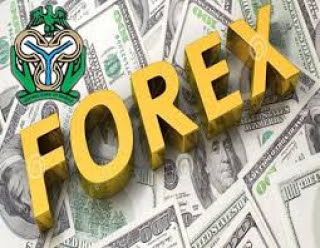The Central Bank of Nigeria (CBN) has clarified its position on the removal of third parties from buying of foreign exchange routed through Form M, Letters of Credit, and other forms of payment
The apex bank, in a circular with Reference number TED/FEM/FPC/GEN/01/009, which was issued by the CBN to all authorized dealers and the general public on November 18, 2020, and signed by its Director for Trade and Exchange, Dr. O. S. Nnaji, reiterated its earlier directive that destination payment for all forms M, Letters of Credit, and other forms of payment should be made directly to the ‘Ultimate Supplier of Products’.
It, however, gave conditions that must be met by importers if they choose to use a buying company other than the primary manufacturer.
This was disclosed in a circular with The circular is a follow up to the one earlier issued by the apex bank on the same subject matter.
According to CBN’s August 2020 circular on the payment modalities, the name of the ultimate supplier of products should be the beneficiary on the Form M, Invoice, Bill of Exchange, Letter of Credit Instrument, and any other relevant document to the transaction.
The ‘Ultimate Supplier of Products’ means the direct party selling the goods to the importer, irrespective of whether the party involved is the manufacturer or internationally recognized buying company/supplier/agent.
The circular further stated that the authorized dealers should ensure that payments are made only to the beneficiary whose name appears on the Form M, Invoice, Bill of Exchange, Letter of Credit Instrument, and any other relevant document.
In addition, the circular stated that where it became unavoidable that an importer chooses to use a buying company, other than the primary manufacturer, the importer shall make available the following documents as applicable, for consideration and approval by the CBN before opening Form M; detailed KYC and profile of the buying company; 3 year audited financial statement of the buying company; and
Letter of reference from the buying company’s banker, stating relationship and capacity.
Other requirements contained in the circular are that such an importer shall comply with the Transfer pricing policy and arrangements in the home country; Register with its home country’s chamber of commerce; show evidences of tax payments in the home country and of authorization to act as agents and/or distributors to the original equipment manufacturer.
The apex bank directed that all authorized dealers are requested to ensure that the list of eligible third parties that meet the requirements above are submitted to the bank for authentication before on-boarding.
The latest clarification by the apex bank and its flexibility on the new policy comes on the heels of outcry from some importers and stakeholders, who felt that the implementation of the policy based on the August 2020 circular directive would negatively impact on their operations.
But then, analysts see the CBN’s policy as part of its efforts to ensure prudent use of the country’s foreign exchange resources as well as help in curbing incidences of over-invoicing, transfer pricing, double handling charges with the attendant beneficial implications for Nigerian consumers.






